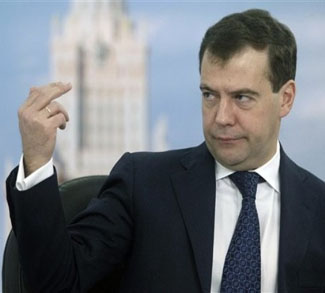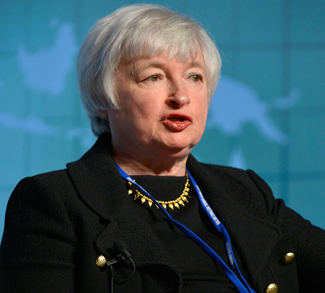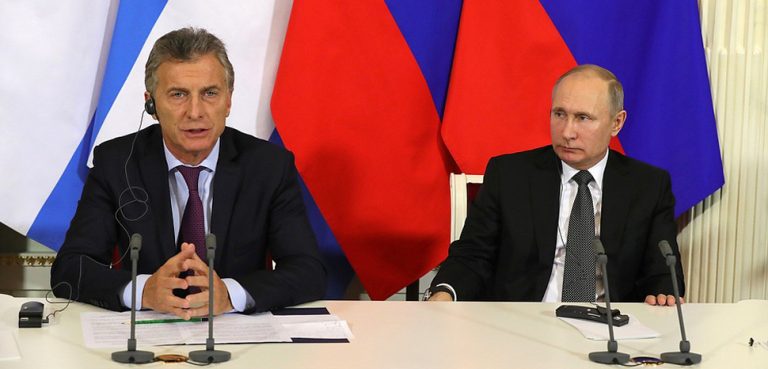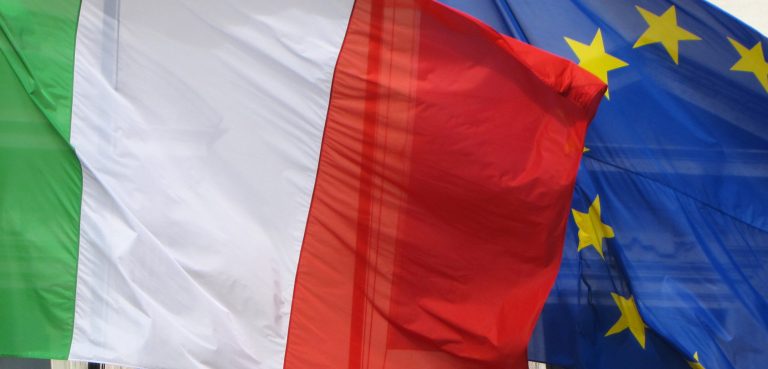Summary
While the Kremlin might have temporarily stopped the bleed of Russian economic contraction, President Medvedev presides over an exceedingly bleak economic outlook.
Analysis
Earlier this week in a speech to the United Russia party faithful, Russian President Dmitry Medvedev made it clear that he believed that the Russian economy was in dire need of economic reform. According to President Medvedev, Russia’s is a, “backward, commodity-based economy, which in the modern sense of the word can hardly be called an economy.” As any good orator would, President Medvedev went on to sprinkle some hope on the gloom by pledging that his government would build a modern economy based on technology and innovation. Given the myriad of socioeconomic problems that Russia now faces, President Medvedev’s pledge of economic reform is little more than shooting for the moon.
Russia’s status as “R” in the BRIC countries– a bloc defined by future economic potential- is largely owing to its vast energy reserves. These reserves have allowed Russia to not only remain unconstrained by the foreign policy dictates of energy security, but also grow at a steady clip despite structural political and economic factors that ordinarily scare off foreign investment.
The global economic crisis abruptly interrupted Russia’s ten years of average 7 percent growth, sending the Russian economy into a tailspin. With plummeting global energy prices toppling the central pillar of the economy, Russia’s GDP contracted by 10.9 percent in the second quarter and 8.9 percent in the third. According to the World Bank, Russia’s annual contraction for 2009 should end up settling at around 8.7 percent.
Collapsing commodity prices have forced the Kremlin into yet another auction of state assets; a similar dynamic to that which created the notorious oligarchs in the 1990s. The 2010 target for state asset sales is $3.5 billion. These funds are desperately needed to narrow the federal budget deficit, which currently sits at 6.8 percent of output.
17.4 percent of the Russian population lives beneath the subsistence level of $185 a month- an increase of 5 percent since the global economic crisis- and over a million Russians have lost their jobs in the past year. Not even Vladimir Putin’s popularity ratings can survive such an economic drumming. Between October and November, public trust in Prime Minister Putin fell from 72 percent to 65 percent. President Medvedev hasn’t fared much better, as his rating has also bottomed out at a precarious 54%
If the Russian economy is going to shake its dependence on commodities and become the modern, technology-driven juggernaut that President Medvedev envisions, it will need to win the confidence of investors and lure educated overseas Russians back into the fold. On both fronts, Russia’s prospects are stymied by weak political institutions and widespread corruption. According to a recent report by PriceWaterhouseCoopers, companies in Russia experience more economic crime than anywhere else in the world. Of 86 companies polled in Russia, 71 percent claimed to be victim of bribery, extortion, or fraud in the past year. Questions surrounding political institutions- from the need to bribe low-level bureaucrats to the future of Russian politics after Vladamir Putin- will continue to keep potential foreign investors at safe distance.
A modern economy requires talented professionals, and this is another field in which Russian government has some confidence building ahead of it. Just last week, Sergei Magnitsky, a lawyer who took the wrong side of a case and drew the Kremlin’s ire, died in detention after complaining of chest pains and being refused medical treatment. Mr. Magnitsky has joined the long list of Russian lawyers, journalists, and activists who were punished for being on the wrong side of the Kremlin line. Other prominent figures on the list include: Chechnya activist Natalia Estemirova, journalist Anna Politkovskaya, and her lawyer, Stanislav Markelov. Without the protection of the rule of law, it’s doubtful that President Medvedev will get the workforce his modern economy requires.
Even though the global economic crisis has provided the Kremlin with a stark reminder of the folly of over-dependence on commodities, economic reform is easier said than done. Despite President Medvedev’s best efforts, the Russian economy will continue to rise and fall on the price of oil and gas.




